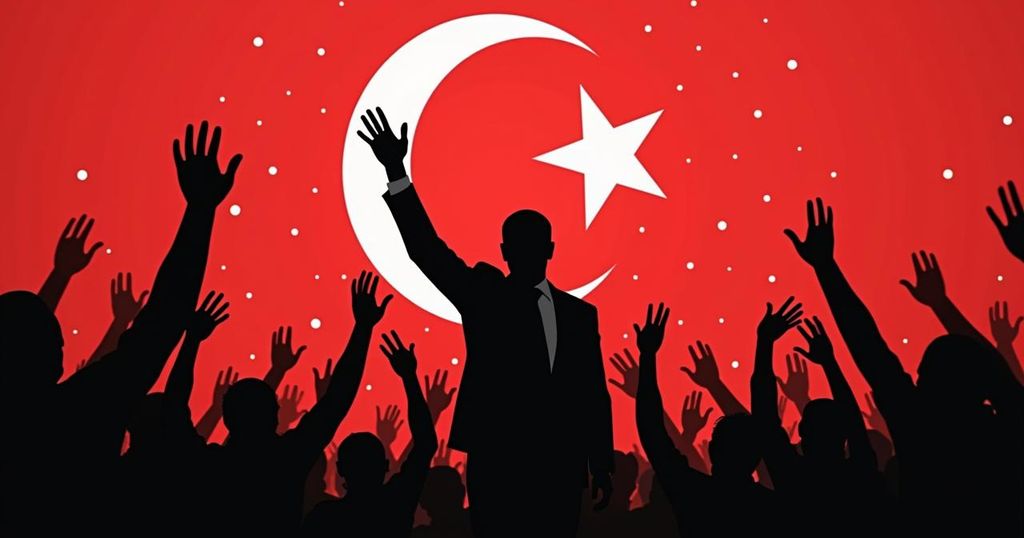Kais Saied Secures Second Term in Controversial Tunisian Election

Kais Saied has been re-elected president of Tunisia, winning 90.7 percent of the vote amid a low turnout of 28.8 percent. This election follows a troubling trend of political oppression, as Saied has faced criticism for arresting political opponents and dissolving the parliament in 2021. Many fear these actions undermine the democratic progress made since the Arab Spring.
The Independent High Authority for Elections of Tunisia has announced that President Kais Saied has secured re-election, receiving 90.7 percent of the votes cast in the recent presidential election. This election, held amidst a notably low voter turnout of 28.8 percent—the lowest since the 2011 revolution—saw Saied contend against two challengers: Zouhair Maghzaoui, the leader of the Chaab Party, and Ayachi Zammel, a businessman who had previously been viewed as a formidable opponent until his recent imprisonment. President Saied, who has been in office since 2019, has faced criticism for a series of arrests targeting political opposition and dissent, actions that rights organizations argue have eroded the democratic advancements made in Tunisia following the Arab Spring, when the nation was praised for its relative success in establishing a flawed yet competitive democracy. In a move marked by controversy, Saied dissolved the parliament and revised the country’s constitution in 2021, acts the opposition has labeled as a coup. His administration has been characterized by a clampdown on dissent, with prominent opposition figures—including members of the largest parties—imprisoned, further stifling any significant challenge to his presidency. Upon learning of his victory, Saied remarked that this election indicates a continuation of the revolution and emphasized his commitment to purge the country of corruption and betrayal.
The context of Tunisia’s political landscape is deeply rooted in the 2011 Arab Spring, which paved the way for a democratic transition following decades of authoritarian rule. For years, Tunisia was lauded as a beacon of hope for democracy in the Arab world, establishing political pluralism and freedom of expression. However, in the recent years, particularly under President Kais Saied’s leadership, there has been a significant regression in democratic practices, with Saied consolidating power and diminishing institutional checks. Major opposition parties have been effectively sidelined, and numerous political figures have been imprisoned, prompting concerns regarding the state of democracy and civil liberties in the country. The recent presidential election further reflects this troubling trend, as the numbers suggest a disenchanted electorate amid rising tensions between Saied’s government and the opposition factions.
In summary, Kais Saied’s re-election to the presidency comes at a critical juncture for Tunisia, marked by unprecedented low voter turnout and increasing political repression. His substantial electoral victory belies a growing disenchantment among voters and highlights significant challenges to democratic governance as numerous political adversaries remain imprisoned. Saied’s administration continues to face scrutiny for its authoritarian tendencies, raising pertinent questions about the future trajectory of democracy in Tunisia and the potential restoration of civil rights.
Original Source: www.aljazeera.com







